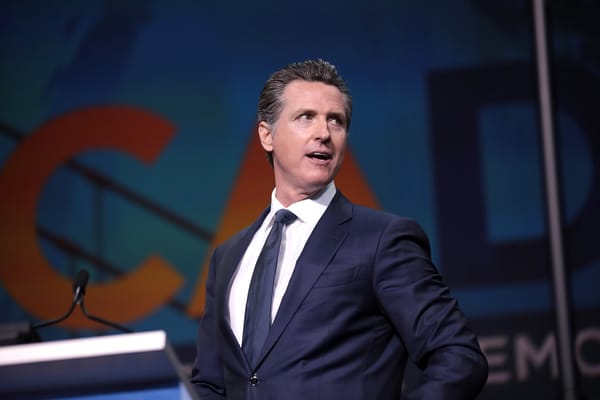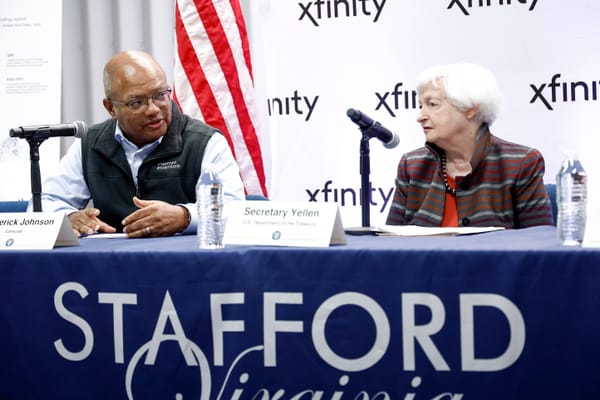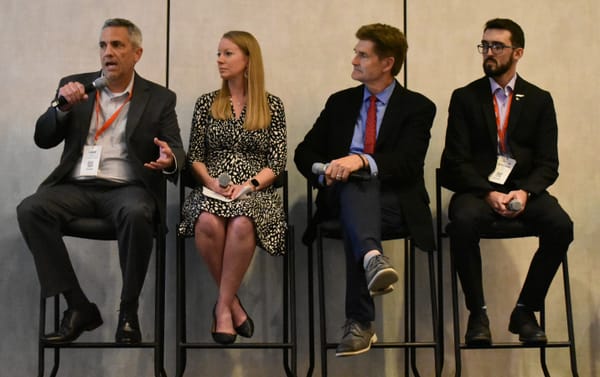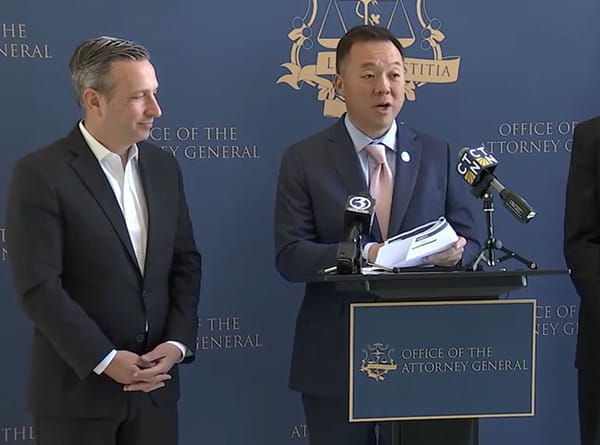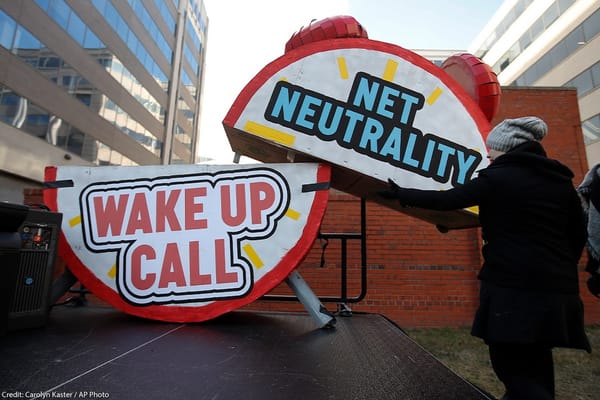Senate Democrats Pressure ISPs To Fully Fund May ACP
A commitment to fully fund the month of May would give Congress time to provide new money for the Affordable Connectivity Program.
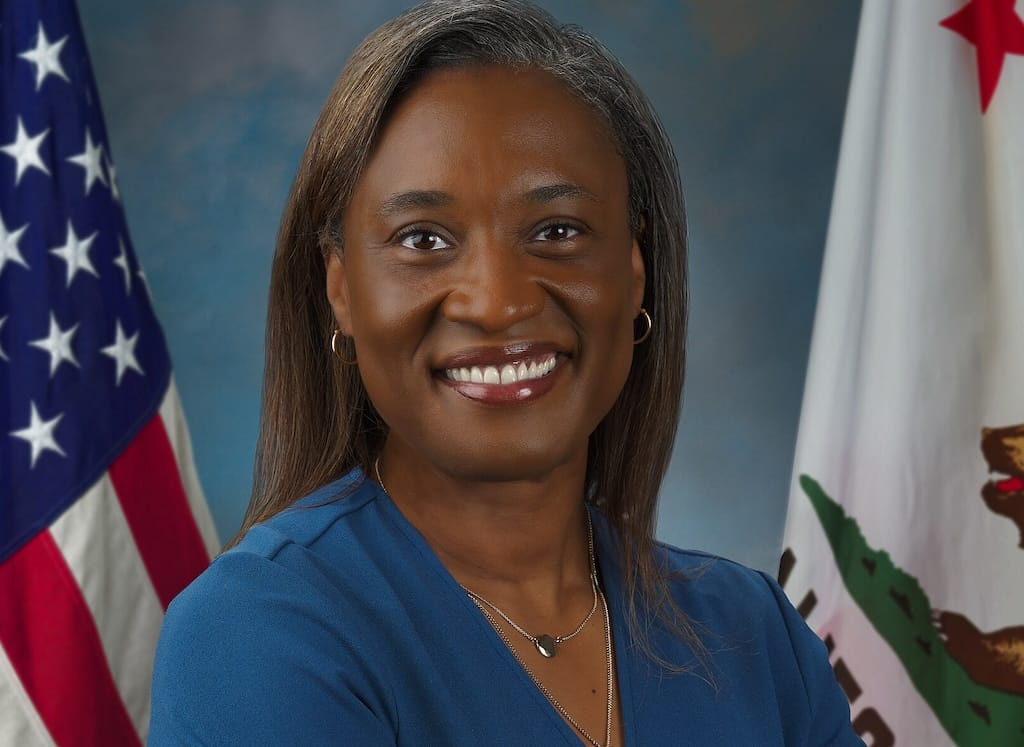
WASHINGTON, April 28, 2024 – With a key federal Internet subsidy program close to running out of money, a small number of Senate Democrats is pressuring Internet Service Providers to keep the program fully funded through the month of May.
The Senate Democrats said a commitment to fully fund the month of May would give Congress time to provide new money for the Affordable Connectivity Program, which runs out of full funding on April 30. Remaining funds will be used as partial discounts on May bills.
"This action would help maintain subscribers in May, who might otherwise leave the program when faced with even the smallest price increase, while Congress continues to work on a legislative solution to this problem," the lawmakers said.
They added the House and Senate calendars were aligned during May, perhaps leading to a new law with ACP funding.
“With both the Senate and House of Representatives in sessions for four weeks in May, this extra time would give lawmakers a critical window to work on and pass a legislative solution,” the lawmakers said.
As Broadband Breakfast previously reported, Senate Commerce Committee Chair Maria Cantwell, D-Wash., is aiming to introduce a bill that would restore the Federal Communications Commission’s spectrum auction authority for five years, as well as provide funding for the Affordable Connectivity Program and the rip and replace program. The committee is planning to vote on the bill May 1.
The Democratic Senators' April 26 letter was sent to the leaders of NCTA - The Internet & Television Association, whose membership includes Comcast Corp. and Charter Communications, and CTIA, a trade group for wireless providers such as AT&T, Verizon and T-Mobile.
The lawmakers on the letter were: Sens. Edward Markey, D-Mass., Laphonza Butler, D-Calif., Bernard Sanders, D-Vermont, Ron Wyden, D-Ore., and Elizabeth Warren, D-Mass.
The ACP, launched in late 2021, started with $14.2 billion included in the Infrastructure Act. Unlike the FCC’s Universal Service Fund, the ACP was not given an independent source of funding in that it needs Congress to appropriate money to keep the program running.
In their letter, the Senate lawmakers urged wireline and wireless ISPs to fill the void in May, though their request did not extend deeper into the year.
“With Internet service providers having received billions of federal dollars in ACP funds, covering the May shortfall is a small price for your members to pay to demonstrate their commitment to putting their subscribers first,” the Senate lawmakers said.
Through April, the ACP will provide low-income households $30 per month and $75 a month to enrollees on tribal lands. In May, only partial amounts will go out, with the $30 subsidy dropping to $14 and tribal support slipping to $35, the FCC said. The ACP has more than 23 million households enrolled.
“With this funding lapse imminent and many customers confused or worried about their future Internet access, we urge your members to cover the $16 shortfall for each ACP subscriber in May ($40 for those on tribal lands),” the Senate Democrats said.
In February, ISPs claimed $603.7 million in ACP support, according to the Universal Service Administrative Co., which runs the ACP for the FCC. If ISPs had to fully fund May, it would likely cost at least $300 million.
On a call Friday with Wall Street analysts, Charter CEO Christopher Winfrey said the company would provide $15 discounts on ACP bills in May. Charter has about 5 million ACP enrollees.
“We'll go through the month of May with a partial ACP in accordance with what the government outlined. It's going to be a partial credit of $14, and we've agreed to make it $15 just to round it and make it clear …and fair to customers,” Winfrey said.
After the call, London-based Barclays bank issued a report saying “given the scale of Charter’s exposure to ACP, the company will likely see unprecedented subscriber losses.”
Winfrey said he felt confident about an acceptable outcome because a majority of the company’s ACP recipients were customers before the program started and that the vast majority “pay something out of pocket” for their Internet service.
“This event’s unprecedented. In almost 30 years of cable, I haven't seen something like this before. So the short-term impact, it's difficult to predict. But in the end, I'm really confident we're going to manage through it successfully,” Winfrey said.
To keep customers on board, Charter plans to offer all ACP customers a free mobile line for one year and market its Spectrum Internet Assist, a low-cost option for eligible families and seniors that costs $29.99 a month with 50 Mbps download speeds and no data caps.
“We will do everything we can to preserve our relationship with the ACP subsidy recipients and we expect to keep the vast majority of them as customers,” Winfrey said.
Comcast has apparently prepared for the end of the ACP by announcing on April 17 a pre-paid service called NOW Internet, which starts at 100 Mbps for $30 a month. The plan includes unlimited data and a refurbished Xfinity gateway.
In their letter, the Senate Democrats referred to an FCC survey that found that 68% of ACP households had inconsistent or no Internet service prior to the ACP and 80% said they would drop Internet service if the ACP ends, cutting them off from critical services available online.
“If Congress is able to extend the ACP, it would be devastating for ACP households that drop Internet service during the period of lapsed funding, forcing them to re-enroll in the ACP, a process that can require significant time and expense,” the lawmakers said.


